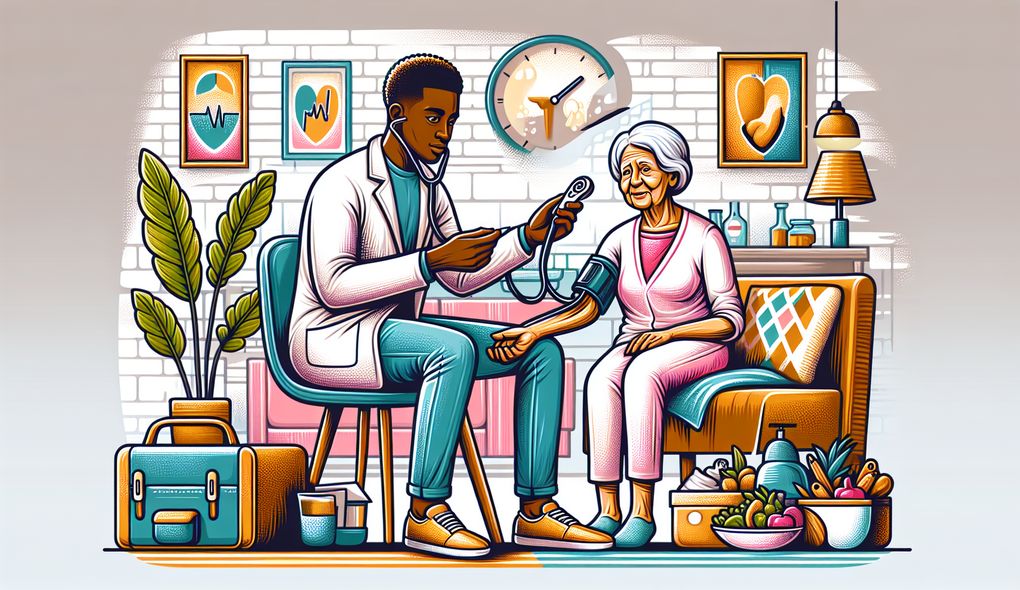Tell me about a time when you had to handle a difficult or challenging patient.
SENIOR LEVEL

Sample answer to the question:
One time, I had a challenging patient who was resistant to receiving care. She was elderly and had a fear of medical procedures, so she would often refuse to let me complete necessary tasks. To handle this situation, I took a patient-centered approach. I spent time building rapport with her, listening to her concerns, and addressing any fears she had. I explained each procedure in detail, showing empathy and understanding. By taking the time to connect with her and gain her trust, I was able to gradually ease her anxiety and successfully provide the care she needed.
Here is a more solid answer:
I encountered a challenging patient who was resistant to receiving care due to a fear of medical procedures. As a home health nurse, I understood the importance of building rapport and trust with patients, especially in their own homes. To address this situation, I took a patient-centered approach. I spent time talking to the patient, listening to her concerns, and understanding her fears. I explained each procedure in detail, using simple language to ensure she understood. I also used visual aids and demonstrations to help alleviate her anxiety. By patiently addressing her fears and providing emotional support, I was able to gradually gain her trust and successfully complete the necessary care.
Why is this a more solid answer?
The solid answer expands on the basic answer by providing more details and specific examples of the candidate's actions and approach. It demonstrates their ability to communicate effectively with the patient and adapt their care to meet the patient's needs. However, it could still benefit from further elaboration on the clinical aspects of the care provided and the outcomes achieved.
An example of a exceptional answer:
In my role as a home health nurse, I encountered a challenging patient who was extremely apprehensive about receiving care. She had developed a fear of medical procedures over time, making it challenging for me to provide the necessary care. To address this situation, I employed a holistic and patient-centered approach. I began by actively listening to her concerns, allowing her to express her fears and anxieties. I empathized with her and validated her emotions, assuring her that I would do everything possible to make her feel comfortable and safe. I took the time to thoroughly explain each procedure, breaking them down into simple steps and ensuring she understood each aspect. I used visual aids and demonstrations to enhance her understanding and provide a visual representation of what to expect. Additionally, I collaborated with the patient's family members, involving them in the care plan and providing them with education on how to support the patient at home. By involving the patient's support system and addressing her emotional needs, we were able to gradually overcome her resistance to care. Over time, she became more cooperative and eventually allowed me to complete the necessary procedures with minimal distress. This experience taught me the importance of patience, empathy, and adaptability when working with challenging patients. It reinforced my commitment to delivering patient-centered care and finding innovative ways to address individual needs and fears.
Why is this an exceptional answer?
The exceptional answer provides a comprehensive and detailed account of the candidate's approach to handling the difficult patient. It highlights their ability to actively listen, empathize, and address the patient's emotional needs while also involving the patient's family in the care process. The answer demonstrates the candidate's advanced ability to adapt their strategies and communicate effectively to overcome barriers to care. It showcases their commitment to delivering patient-centered care and their dedication to finding innovative solutions. However, the answer could be further improved by including specific clinical outcomes and measurements of success.
How to prepare for this question:
- Reflect on past experiences in dealing with challenging patients and think about the strategies that proved effective in those situations.
- Consider the importance of empathy and active listening in building rapport and trust with patients.
- Think about how you can adapt your communication style to effectively explain procedures and address patient fears and anxieties.
- Reflect on the significance of involving the patient's support system, such as family members, in the care process.
- Consider the outcomes and measurements of success in handling difficult patients, such as improved patient cooperation or reduced anxiety levels.
What are interviewers evaluating with this question?
- Interpersonal Skills
- Patient-Centered Care

